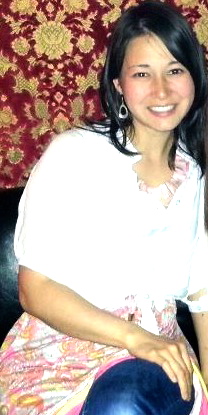The first thing that surprised me was what kind of people Japan attracts. Sure, when I came to live here it wasn’t my first time in Japan. I had been here for study abroad and I met people from all over the world. As a Japanese-American woman, I experienced Western men. Western men with a mission: to date any beautiful Japanese girl they could find. Nothing like this was written in any guide book to Japan.

Just for the fun of it, I went to a speed dating program in Roppongi. I went with a few Japanese girlfriends who were all single and hoping. There were some Japanese men there, not my type, but then there were the Western men. The best 5 minute dates I had were preceded by the Japanese date, where I spoke Japanese.
In came the Western man, speaking slowly and clearly, “Hello. Konnichiwa. How are you?”
“Hey, how’s it going? I’m fine. Where are you from?”
“Wow, your English is really good. You must have studied in America during high school, right?”
“Um… yes… I did.”
I’ve gotten this many times. To most Westerners I’ve met, I look fully Japanese.

However, the opposite sometimes goes for Japanese locals. My father is a third generation Japanese-American, and my mother is caucasian. This makes me half, and very confusing to the locals in Japan.
“What is she?”
”
It looks like there’s something Japanese about her…”
“Ne, nihonjin ga haitteiru kedo…”
One time, when I told a Japanese girl my full name she asked me, “Hayashi? Is ‘Hayashi’ an American name too?”
Thinking about this question more deeply, there are no true American names (except for the native Americans), but I was born in America. So yes, ‘Hayashi’ is an American name.
Riding the train, older generations unabashedly stare and converse about my nature. It’s easy to spot. I’ve learned the Japanese passive-aggressive approach is the best way to have a little fun. If I’m lucky to have a Japanese friend with me, I can speak a bit more loudly in Japanese. Then if I also have an English speaking friend I can speak in English. This might confuse them even more, but I don’t really mind what their conclusion about me might be. Twenty minutes from now they’ll be talking about yesterday’s coffee with Suzuki-san’s Chihuahua or so and so.
One thing I learned in Japan, is to take things lightly with others around you. Prejudice, discrimination, it happens everywhere. It happens to me on my Japanese and Western side, depending on where I am. I would say a mistake many people have when they come here is that they try to revolutionize the ideas of the locals through force and ranting. Rather than being angry and ranting about the discrimination, leave the situation. You can change who’s closest to you and by doing so, they will realize who you are and what you represent. In turn, they will be your new advocators and express positive opinions about foreigners to the people they’re closest to.
Miko About Miko:
I’m 27 years old and I’ve been in Japan for five years. Right now, I work in two fields where I aminterested in early education. I work in an international preschool in Tokyo. The second is my personal hobby which I hope to turn into a real profit. I hope to illustrate and publish a children’s book sometime this year. I’m aiming for before 2013 ends. It will be in Japanese and English with silhouette characters and brightly colored backgrounds. My Facebook page is www.facebook.com/purplemousebooks where I have some of my personal works listed.
<>I feel like going back to America, because my personality is not Japanese. Especially, I don’t feel like a Japanese woman. Many women in Tokyo are dainty, frilly, with cream colored pinks and other hues. The celebrity I really don’t like is the one advocating for the Tokyo Metro (Horikita Maki) these days. She seems to put on a show of “I’ll try it, but only because it will make me likable. ” I feel like I’m a できる女性 (dekiru josei). I’m not sure how to translate that in any other way but “Can-do Woman”. Whatever challenges I face, I aim to try it with minimal complaints, because it’s for my own sake of knowing my boundaries
But who knows? Some of Japanese culture has stuck to me, (like always being aware of how any of your actions affect others) and maybe I won’t feel like I belong in America either. I might have to always go back and forth between countries.


Comments
You don’t have to be anything..just be you. why should race matter to you so much?
We are all human after all..
Personal stories won’t resonate with everyone who reads them, but that doesn’t mean she should change her story to please a readership. That’s the whole point of this series. It’s just her story, and given that 70% of the GP readership is Western male it’s unique to GP… That’s why we posted it. Miko isn’t a professional writer and I totally respect her sharing… But I realize not everyone will. There’s plenty of entertainment elsewhere so you’ll be just fine.
Yeah I know and it’s great, but it’s (again) a foreigner speaking about how people look/stare at him/her and speak of him/her, so nothing really knew, sorry…
And (again) it’s in Tokyo like 99% of the blogs on internet, not all japanese women are “dainty, frilly, with cream colored pinks and other hues”.
May be the difficulties she met as woman or the way japanese men interact with her (and not westerners, we all know how “they” interact…haha) would have been a little bit more interesting.
May be next time 😉
We are just trying to share the stories of the foreign women who live here, since few publications offer that kind of space in Japan.